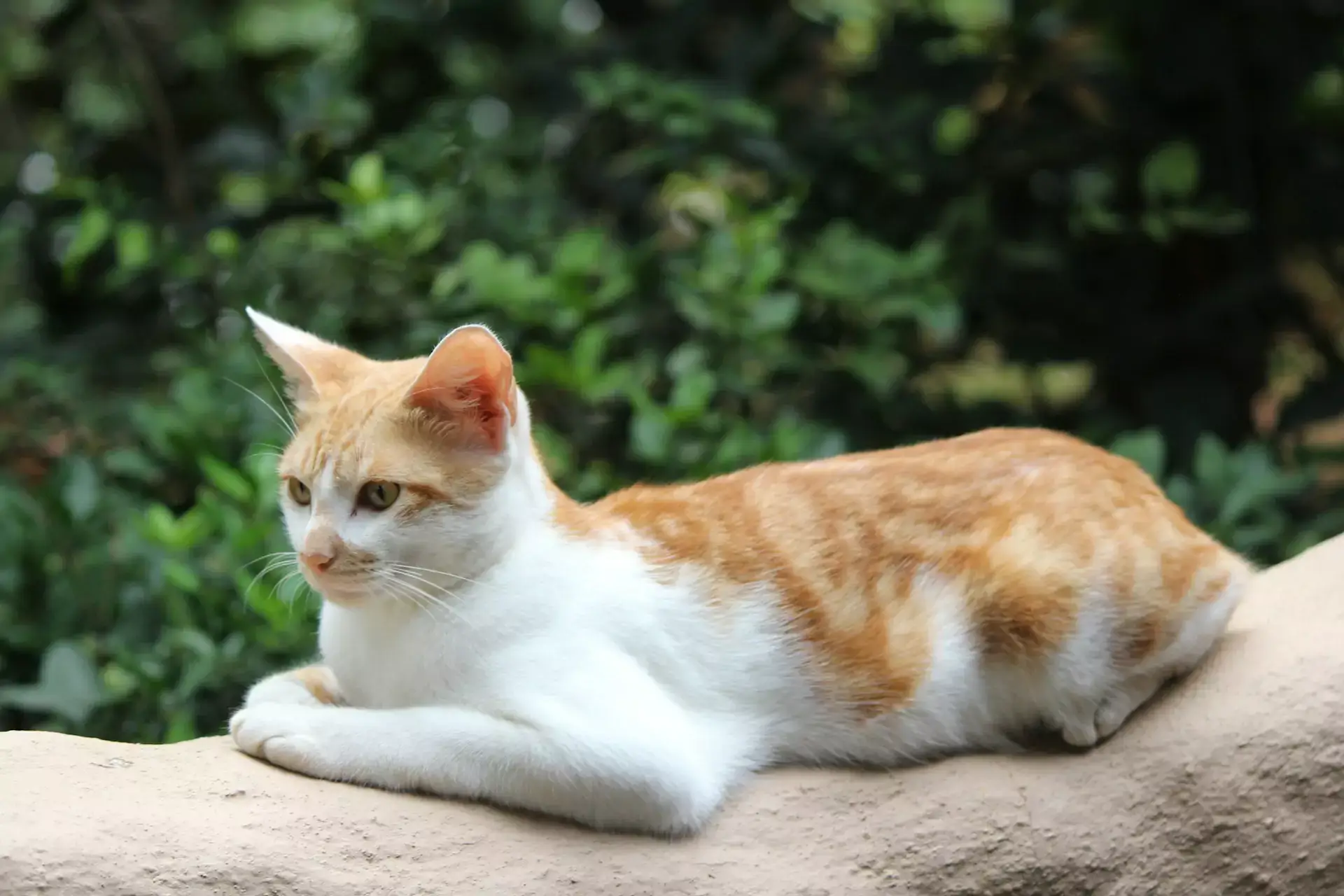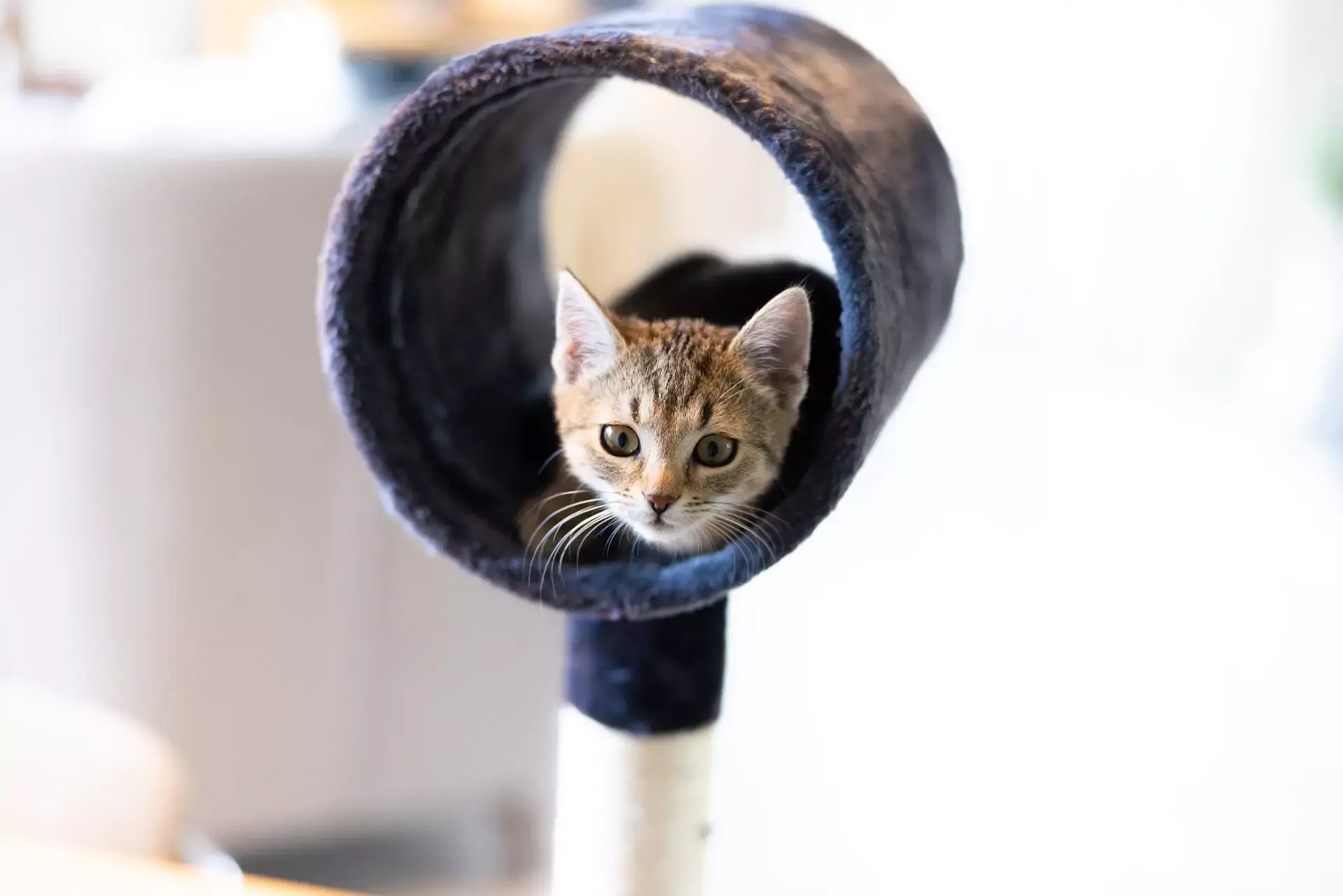May is Adopt A Ferret Month! This is a wonderful time to consider adopting a ferret! While they can be very adorable and entertaining pets, ferrets aren’t always the best choice for everyone. A local Rialto, CA vet shares some insights on ferrets in this article.
What Do Ferrets Eat?
This is one of the most crucial factors to consider when adopting a ferret. Ferrets require a specialized diet, as they have unique nutritional requirements. These guys are obligate carnivores, or hypercarnivores. That means their diet should primarily include generous portions of protein and fat, while being limited in fibers and carbohydrates. In fact, some foods that are beneficial for humans, like corn, can actually be harmful to your pet’s health.
You should look for an appropriate ferret food. This should contain approximately 40% protein and a minimum of 20% fat. Aim for a carbohydrate and fiber content that is less than five percent.
Just like with any other kind of pet, it’s important to be aware of what can be harmful to your furry friend. Some of those include sweets, dairy products, raisins, fruits, and vegetables chocolate, grapes, avocado, and xylitol.
You won’t be able to get food for your pet at any market or convenience store like you can for a cat or dog. In addition, ferrets can become quite fixated on a particular food, often to the extent of ignoring everything else. This might seem adorable, but it’s actually quite risky. If one day you find that your furry friend’s go-to brand is no longer available, you may have a very hard time getting them to try something else.
Ask your Rialto, CA veterinarian for specific advice, including recommendations on appropriate portion sizes, suitable treats, and a list of safe and unsafe foods.
Will Ferrets Use Litterboxes?
Yes, they can. This is certainly one of the advantages. However, there is no guarantee for this. It’s best to start training while your pet is still young.
What Kind Of Sicknesses Do Ferrets Get?
Ferrets are prone to various medical problems, including flu, cancer, parasites, adrenal disease, heartworm, lymphoma, and mouth sores. You’ll need to keep a careful eye out for warning signs. These include:
- Bloating
- Drooling
- Seizures
- Weight loss
- Diarrhea
- Difficulty walking
- Fever
- Lethargy
- Appetite loss
- Trouble breathing
- Cough
- Back leg weakness
- Vomiting
- Itching
- Runny eyes
- Sneezing
- Tremor
Contact your Rialto, CA vet right away if you spot any of these. The sooner an issue is treated, the better!
What Should I Know Before Adopting A Ferret?
Ferrets truly stand out among our animal companions, occupying a unique place in the animal kingdom. They are undeniably adorable and enjoyable. They are also affectionate and cuddly. Overall, these guys are small bundles of mischief that will keep you entertained and alert.
That said, here are a few things to keep in mind.
They Love To Get Out
Ferrets are excellent escape artists. They have been known to escape through incredibly small openings, including shower drains! In addition, they are small enough to access small spaces underneath furniture like beds and couches.
They Need Lots Of Attention
While it is critical for your small friends to have a spacious, comfy cage, they will require a lot of time outside of their cage. You’ll also need to pay lots of attention to your ferret, and offer plenty of toys.
They’re Thieves (Though Cute Ones)
Your adorable little companion is, well, a bit of a thief. They’ll snatch up anything they can get their hands on. That’s why it’s crucial to petproof your home. observe your pet’s behavior, so you can Find their preferred hiding spots. (Hint: It might not be inside their cage.) If something goes missing, that’s the first place you need to check.
Ferrets May Bite
Occasionally, ferrets may nip, whether it’s during playtime or if they become startled. This may not be a sign of aggression. Ferret kits also engage in playful biting with one another, though their thick fur provides them with protection from their boisterous ferret buddies. Our skin, on the other hand, is no match for those teeth. This is definitely worth considering if you have young kids.
What Age Ferret Should I Get?
Whenever it comes to adopting a pet, we always advocate for people who provide a safe and loving environment for rescued animals. Generally, it’s a good idea to remember the Adopt, Don’t Shop motto in most situations. However, there are a couple of things to keep in mind.
If a ferret is less than two months old, it should remain with its mother.
Ferrets are typically most active and playful during their initial one or two years of life. That doesn’t mean they won’t be fantastic companions. Just Be prepared to invest a significant amount of effort and time into caring for a young ferret.
If you’re considering adding a ferret to your family, it’s worth checking if there are any ferrets available for adoption at a local animal shelter or rescue group.
How Do I Ferret-Proof My Home?
Ferret proofing is an absolute must. Ferrets can be quite mischievous, often snatching items and stashing them away for future use. You’ll need to do everything you would to make your place safe for a child, plus a few additional steps. Just like with cats and dogs, it’s important to keep any potential choking, strangling, or poisoning hazards out of paws’ reach.
Some of the things to address include small or sharp objects, soaps and shampoos, chemicals, common household products like cleaning agents and pesticides, prescription drugs, plastic bags and ties, unsafe foods, items made of rubber, personal belongings, sparkling objects, little details, money and wallets., mobile devices, keychains … the list goes on.
Toxic plants are another concern. Some of the ones that are dangerous to ferrets include the following:
- Aloe Vera
- Amaryllis
- Azalea
- Baby’s Breath
- Begonia
- Carnation
- Castor Bean
- Chrysanthemum
- Cyclamen
- Daffodil
- Gladiola
- Hosta
- Ivy
- All Lily Species
- Milkweed
- Morning Glory
- Oleander
- Poinsettia
- Pothos
- Sago Palm
- Tomato Plants
- Tulips
- Narcissus
- Rhododendron
- Yew
You’ll also need to address potential hidey holes and escape routes. crouch down and observe your surroundings from your pet’s perspective. Ferrets have a knack for squeezing into tight spaces, including futons, recliners, and couches. You’ll need to be extremely attentive.
Do Ferrets Need To Be Bathed?
Ferrets don’t necessarily need baths, unless of course they get something spilled on them. They also have differing opinions on the benefits of baths. Some love playing in water, while others don’t like getting wet at all.
If you want to bathe your ferret, it’s best to do so only every few months. It’s worth mentioning that some people believe that giving ferrets baths can help minimize their musky scent. That’s not true. In fact, overbathing can actually dry out your ferret’s skin and lead to potential issues.
As far as soap, get one specifically designed for ferrets. Another option is to use baby shampoo. Your pet should be able to walk in the water and keep their head above the surface.
Whether you bathe your pet or not, they will still require regular nail trims and ear cleaning. Feel free to consult your veterinarian for further details.
Contact Our Rialto, CA Pet Hospital
Do you need to make an appointment for your pet ferret? Please feel free to contact us today. As your local Rialto, CA pet clinic, we are here to help!



